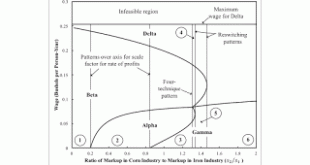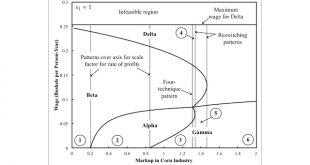This is C27 in Sraffas archives. 97 Fortis Green London N2 Tudor 0214 6th August 1966 Dear Piero, I do not know whether you know Roger Simon, who is Secretary of the Labour Research Department. At all events he is a great admirer and enthusiast of Gramsci. Thanks to his initiative, plans are afoot (in which I too am collaborating) to publish a new volume of Gramsci's works translated into English and Lawrence & Wishart have agreed, in principle, to undertake publication. We...
Read More »Keynes and Henderson Create A Qualitative Multiplier
In 1929, John Maynard Keynes and Hubert D. Henderson wrote, Can Lloyd George Do It? The Pledge Examined. This was published by The Nation and Athenaeum and is an examination of the pledge by the leader of the Liberal party, if elected, to dramatically reduce the amount of unemployment in Great Britain. (I was inspired to look up this work while reading Zachary Carter's new book.) Chapter VI of Keynes and Henderson is concerned with "How Much Employment Will the Liberal Plan Provide?" The...
Read More »“When Economists Are Wrong”
In a blog associated with the Frankfurter Allegmeine, Gerald Braunberger criticizes the effects of Sraffian political economy on Italian policy in the 1970s. I rely on google translate and subject matter expertise to make some sense out of this. By the way, Bertram Schefold shows up in the comments. I would like to know more about the motivations behind this. Does Braunberger think the public is increasingly aware that mainstream economics is broken? Before I disagree, I note Braunberger...
Read More »Visualizing The Effects Of Markups: A Numeric Example
Figure 1: A Pattern Diagram This post illustrates the numeric example used here. The example is of an economy in which two commodities, iron and corn, are produced by workers from inputs of iron and corn. Two processes are available for each industry, leading to a choice among four techniques. I analyze stationary states. I look at prices of production, with a bushel corn as numeraire and wages paid out of the surplus at the end of the year. Prices of production are defined so as to allow...
Read More »Visualizing the Effects of Markups on the Choice of Technique
I have a working paper. Abstract: This article extends to unequal rates of profits a derivation of prices of production from a linear program. A partition of the price-wage space is illustrated in an example with two produced commodities. The variation in the solution of the LP with perturbations of relative markups is illustrated. This analysis provides an intuitive explanation of how the reswitching of techniques and of how capital reversing can emerge in non-competitive markets.
Read More »David Graeber (1961 – 2020) On Usenet A Long Time Ago
I first became aware of David Graeber as a poster on Usenet back in the 1990s. Many people who have succeeded in this world have no interest in conducting honest discussions. I found some places where one could have cheerful talk, including with harsh disagreement. And I found other places not so much. I probably fit in with the latter. Sometime in November 1998, a thread arose, "A Donaldism for David Friedman". David Friedman is Milton's son and also promotes plutocracy under the guise...
Read More »A Derivation Of Sraffa’s First Equations
1.0 Introduction Piero Sraffa wrote down his 'first equations' in 1927, for an economy without a surplus. D3/12/5 starts with these equations for an economy with three produced commodities. I always thought that they did not make dimensional sense, but Garegnani (2005) argues otherwise. This post details Garegnani's argument, albeit with my own notation. There are arguments about how and why Sraffa started on his research project I do not address here. The question is how did he relate...
Read More »Stephen Gordon And Alex Tabarrok Being Stupid On Twitter
Paul Graham jokingly asks, "What phrase signals that the person using it doesn't understand your field?" Stephen Gordon and Alex Tabarrok both respond with "Neoclassical economics". Jamie Morgan (ed.) (2016) What is Neoclassical Economics? Debating the Origins, Meaning, and Significance, New York: Routledge. R. Robert Russell and Maurice Wilkinson (1979). Microeconomics: A Synthesis of Modern and Neoclassical Theory, New York: John Wiley.
Read More »Unpublished Reviews of Sraffa’s Book and Related Matters
I have a new working paper. The article presents previously unpublished material from file D13/12/111 in Sraffa's archives. In particular, it reproduces an English translation of Aurelio Macchioro's review in Annali dell'Istituto Giangiacomo Feltrinelli, a summary by Christopher Bliss of a paper that he read to the Cambridge Political Economy Club, a draft response by James Meade, a rejected paper on Marx by Vittorio Volterra and Moshe Machover, and a paper on the subsistence economy by...
Read More »2 = +2 = 2/1 = 2.0 = 2.0 + j x 0.0?
"Typically 2 the integer is used for counting, whereas 2 the real number is used for measuring. But in higher mathematics there's a technical sense in which integers aren't real numbers -- we say instead that they can be identified with real numbers." -- Timothy Gowers 1.0 Introduction Numbers, in some sense, are only defined in mathematics up to isomorphisms. This post runs quickly through some math to explain what this means. I begin by assuming knowledge of the natural numbers,...
Read More » Heterodox
Heterodox


